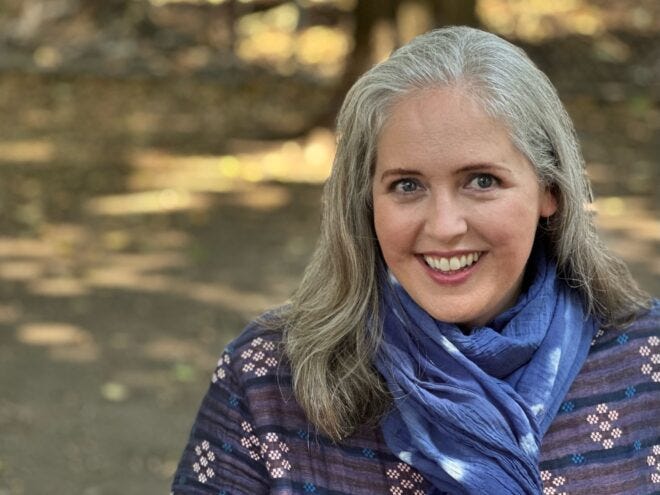✨Kate Hilton and Elizabeth Renzetti share tips for writing a co-authored novel✨
Bianca, Carly, and CeCe are joined by two acquisitions editors for Books with Hooks, and Bianca interviews Kate Hilton and Liz Renzetti. We also have a guest article about QueryManager!
Hello dearest writers! How are your March writing goals coming along? We hope you’re crushing them, but if you need some extra motivation, make sure you’re catching our weekly podcasts 🌟
In this week’s episode, Bianca, Carly, and CeCe are joined by Elizabeth Hitti and Melanie Iglesias to critique two queries on Books with Hooks. After which, Bianca interviews Kate Hilton and Elizabeth Renzetti, co-authors of Bury the Lead 😍 We also have a guest essay from Carleen Geisler, Associate Literary Agent at ArtHouse Literary Agency, where she discusses what literary agents want you to know about QueryManager.
Don’t forget, we’ve launched a TSNOTYAW Membership Program so you can get even more The Shit No One Tells You About Writing goodness! Our podcast episodes and Friday newsletter issues will continue to go out free of charge (we *love* sharing all this amazing content with writers like you). But as TSNOTYAW has grown, so too have the many, many hours our team pours into it, and in order to be able to keep showing up for our lovely listeners, we decided to launch this exciting new venture.
For just $8USD a month or $80USD a year, you can receive our paid newsletter on Tuesdays which features weekly bonus author Q&As, exclusive content from industry experts, weekly access to Carly Watters and CeCe Lyra’s written notes on queries from the podcast’s Books With Hooks feature, monthly bonus podcast episodes, AND regular Ask Me Anythings / Q&As with Carly, CeCe, and Bianca Marais. If that doesn’t kickstart your writing journey, we don’t know what will!
Thanks for reading ❤️
The Shit No One Tells You About Writing Team
This Week’s Podcast✨🎙️✨
In this week’s 📕Books with Hooks🪝, Bianca, Carly, and CeCe are joined by two acquisitions editors at Atria Books. Melanie Iglesias is a senior editor and has worked on various bestselling titles, including It Starts with Us by Colleen Hoover. Elizabeth joined Atria in 2022 and has worked on various bestselling titles, as well as The Crescent Moon Tea Room by Stacy Sivinski, a Simon and Schuster Top Shelf Pick for this fall.
The four discuss:
The difficulties associated with writing a query with a larger cast of characters
The importance of having an overarching reason for including a large cast and why their worlds are colliding
Whether publisher interest in historical fiction is waning
An example of how to make a hook punchier
The importance of having a strong sense of place, and
The need for interiority to be realistic to your character
After which, Bianca interviews Kate Hilton and Elizabeth Renzetti, co-authors of Bury the Lead. They discuss:
How Liz and Kate's joint project came about
Tackling the challenges of collaborating with another author, particularly when both authors are already established
The drafting process
Keeping track of details like how characters and settings look
When descriptions are necessary and when they don't make sense, and
Whether or not Kate and Liz work with separate agents for their collaborative works
More information about Kate can be found here, or you can connect with her on Instagram or Facebook!
More information about Liz can be found here, or you can connect with her on Twitter or Instagram!
You can purchase Bury the Lead on our Bookshop.org affiliate page here. Buying books through this link supports a local indie bookstore, as well as The Shit No One Tells You About Writing 📚❤️
The Great Beta Reader Match Up is Back 🌟😍✨
Are you looking for beta readers, some of whom might potentially become writing group members down the line?
Are you wanting to be matched up with those writing in a similar genre and/or time zone, so they can critique your work as you critique theirs at the same time?
Your manuscript doesn't have to be complete to sign up!
This particular match up will be open to registrations from now until the 31st of March, with the match up emails going out on the 1st of April.
For more information and to register, click below:
QueryManager and Agents Who Use It: Part 1 ✨
Today is Part One of a three-part series on Query Manager from literary agents who use it. You'll get how-tos, dos and don'ts, and the best advice from agents who are looking for clients on the platform. Keep an eye out for upcoming articles in this series:
March 15, Part Two: Agents Maggie Cooper and Lori Galvin
March 22 ,Part Three: Agent Morgan Strehlow
What a Literary Agent Wants You to Know about QueryManager
By Carleen Geisler, Associate Literary Agent at ArtHouse Literary Agency
Every agency has a different process for accepting queries. Some prefer email entries, some choose to use QueryManager, and I’ve even seen some who use a custom-built submissions system on their website (fancy!). But even among those agencies who choose to use QueryManager, the set up and utilization of the platform can be wildly different.
First, a quick overview: QueryManager is an all-in-one platform where agencies can accept and process queries from authors. It allows communication back and forth, as well as file uploads and easy tracking and filtering on the agent side. On the author's side, the platform allows automated tracking of queries through QueryTracker—but only when specific parameters are met. The user needs to have an account and needs to have submitted their query while logged into that account. Meanwhile, the agency needs to have been added to QueryTracker’s database.
Here are some of the top things I’d love for you to know about using QueryManager. I hope they help make your querying journey a little smoother.
When You’re Submitting in QM
Paste your entire query letter in the Query Letter box. Yes, there are other boxes where some of this information will end up being duplicated (I’ll get to those!), but having all the information we need in one easy-to-see spot in your query letter is much, much easier than clicking and scrolling around to find what we need.
The Synopsis box isn’t for the pitch. If the agency asks for a synopsis, please provide a thorough one. Often, we get a slightly longer (or sometimes exact same) blurb as what was in the query letter here: this is not what this box is asking. Please be detailed in your synopsis (including spoilers, unless specifically asked to not include them!).
The Author Bio can be copied from your query. More often than not, authors directly copy/paste their query letter bio into the Author Bio box and this is totally okay. Sometimes, we’ll get an author bio that is a bit longer and more detailed than the one from the query and that’s always a pleasant surprise—if I’m reading this one after also reading the one in the query, it’s because I’m interested in you and your work! Feel free to include information here about what you’re working on next, or future aspirations.
Don’t put things other than your social media handles in the Social Media boxes. When we look at your social media submissions on the agent’s end, QueryManager kindly auto links your handle for us so that we can easily access your profiles. I understand why you might want to say “my Instagram handle is xyz but I don’t use it very often”, but please know that QM then tries to show us an Instagram account called @myinstagramhandleisxyzbutIdon’tuseitveryoften, and that is very not helpful for us. Also, a note: you absolutely do not need to include social media accounts—this isn’t going to affect whether or not we are interested in your book—but if we are interested in your book, there’s a non-zero chance we’re going to Google you anyway, so you may as well make it easier for us.
When You’re Waiting for an Answer
You can message us. QueryManager has a very handy Message function that sends us a notification in a non-invasive way that does not disrupt workflow. If you have a question or concern, use the Message function rather than spiralling into a pile of anxiety about it or trying to contact us in other ways. As a side note: if you find our personal email somewhere, do not use it for querying reasons.
You do not need to withdraw and resubmit for little fixes. In fact, I would advise you not to withdraw for any reason unless you want to completely remove your submission from consideration. If you’ve found typos or you’ve accidentally typed the agent’s name wrong—don’t fret. It happens all the time. If it will make you feel better, you can send a quick message using the Message feature with a note about the error. This is far less disruptive than withdrawing and resubmitting your query. Plus, withdrawing and resubmitting will lose your place in line for agents who work chronologically!
Don’t use the Notification of Offer function unless you actually have an offer. This feature has one use and one use only. If you use this feature to tell us about something that isn’t an offer, your query will be marked as having an offer—this can’t be undone, and will change how we process your query in our pile. If you do have an offer of rep, then please do use this feature as it’s the best way to ensure we’ve been notified and can prioritize accordingly.
Don’t take QueryTracker’s stats to heart. Everyone processes their submissions differently. Some work chronologically, some do not. Some work by genre, some work by the seat of their pants. Trying to analyze where you are in the line or what an agent is thinking from QueryTracker stats will not give you an accurate view; take it all with a grain of salt. And keep in mind that not every author uses it, so you are never seeing the full picture.
How QM Looks on the Agent Side
Your submission is broken into sections. When we’re scrolling through the inbox in what I’ll call “quick view”, we see just a handful of things: Title, Author Name, Email, Genre, Word Count, and the Day/Time it was submitted. When we click on your submission, the first thing we see is your query letter. Your author bio and social media links are on a separate tab that we have to click through to (remember what I said about having to click and scroll around if you don’t paste the entire query letter?). Your writing sample lives below the query letter, but it’s automatically hidden until we click on it, too.
There is a literal Maybe pile. It’s a big blue button, and, when pressed, it stamps your submission with a special symbol that means your submission is in the maybe pile. This makes it easy for agents to filter their pile and work through submissions they already know they're interested in without potentially getting distracted by new submissions or manuscripts.
There is also a grading system. At any time, your submission might be graded an A, B, C, D, or F and you would never know it. But, even if you did know, you wouldn’t necessarily know what the grades mean. Many agents I’ve talked to do not use this grading system to depict the quality of the submission. For example, I will often use the grading system to give me a quick way to reference if a submission has been read by an intern at our agency, or to mark which manuscript I plan to read next if I’m not working chronologically.
QueryManager automatically flags submissions. These flags can highlight good or bad things—the criteria for what deserves a flag is determined by the agency, with different colored flags meaning different things. Red flags, for example, are often used for word counts that are outside the range of normal.
We can see if you’ve queried us before. This is not to discourage anyone from resubmitting when it’s appropriate, or from submitting a new project after receiving a pass on an old one, but simply a note for anyone trying to be sneaky—we see you in bright red letters.
We have the option to use custom tags. These tags can be set to mean literally anything we want, and we can filter using them. Keep this in mind when you see an agent in QueryTracker who seems to skip around in their submissions pile; they might be filtering by a completely random tag that makes sense to them but wouldn’t be obvious from the outside.
It’s my hope that in sharing this information, I can help alleviate some of the stress of querying, even if it’s just in having a tiny bit more knowledge of how the system works on the other end. QueryManager is an incredibly helpful tool that I am certain saves myself and my colleagues hours of organizational work every week, and while it’s a pretty simple system, it does its job well.
Carleen Geisler is an Associate Literary Agent at ArtHouse Literary Agency. She is looking for adult fiction across contemporary genres, as well as adult nonfiction. You can query her on QueryManager here or find her online @clgslr.
Need a Consultant Beta Reader? Work with Jennifer Kathleen Gibbons 😍📝
“Writing a novel is a terrible experience, during which the hair often falls out and the teeth decay." Flannery O'Connor
Flannery O'Connor had a point, which is why beta readers can be so incredibly useful, telling you honestly what works and what doesn't, so you can take a lot of the guesswork out of writing your WIP.
As a consulting beta reader, Jennifer will give you editorial notes, a progress report, and a final report. She can also help provide comp titles when it's time to find an agent or publisher.
Jennifer Kathleen Gibbons has been credited with helping solve the cold case of Suzanne Bombardier. She has also been published in Salon, Stereo Embers, McSweeneys, and the jonestown report. She has finished her book about Suzanne Bombardier and is working on publishing it. She's also the author of the ebooks I Woke Up in Love This Morning and Take What You Got and Fly With It. She lives in Central California with her cat Livvie.
For more details, email jenniferkathleengibbons@gmail.com
A Seminar With Our Very Own CeCe Lyra 😍🌟
Join CeCe for her popular online course Writing Tension: Creating Tension, Conflict, and Stakes in a Story — this time in an all-new 2-day format with an interactive component. Keep in mind this new format has limited spots, so sign up early if you’d like to secure yours!
A Quick Survey 🤓📈
In order to make sure we're getting the best podcast sponsors for you, we'd love for you to take 1 minute to fill out a quick demographic survey.
That’s all for this week’s news! If you enjoyed it, why not share the love? 🥰
Until next week, happy writing! Tune in again next week, for more invaluable wisdom from our wonderful hosts! 😍
❤️ The Shit No One Tells You About Writing Team
Our work takes place on land now known as Toronto and Ottawa and we acknowledge that these are the traditional territories of the Mississaugas of the Credit, the Anishnabeg, the Chippewa, the Haudenosaunee, and the Wendat Peoples as well as the unceded, unsurrendered territory of the Anishinaabe Algonquin Nation. Toronto is covered under Treaty 13 and the Williams Treaties. We respect and affirm the inherent and Treaty Rights of all Indigenous Peoples across this land and acknowledge the historical oppression of lands, cultures, languages, and the original Peoples in what we now know as Canada. We invite you to learn more about the land you inhabit, the history of that land, and how to actively be part of a better future going forward together at Native Land or Whose Land.














Thanks so much for showing us how QueryManager looks from the agent's side! I've used it countless time when submitting--and now I know that including my comps and bio redundantly (in the body of the main query as well as the separate sections) is often preferred. Very helpful!
Really appreciate the Query Manager clarification. I was stumped!